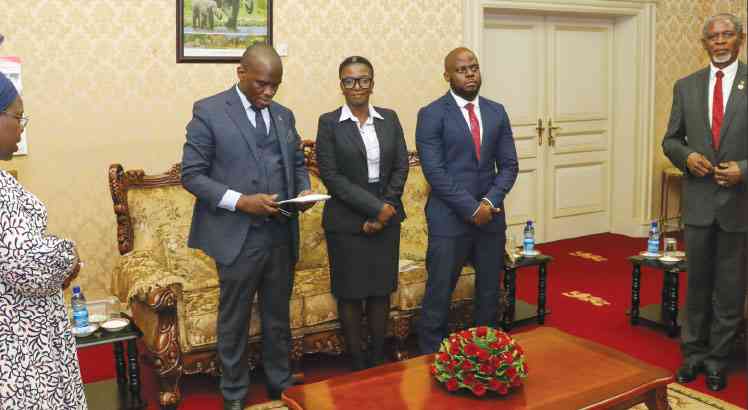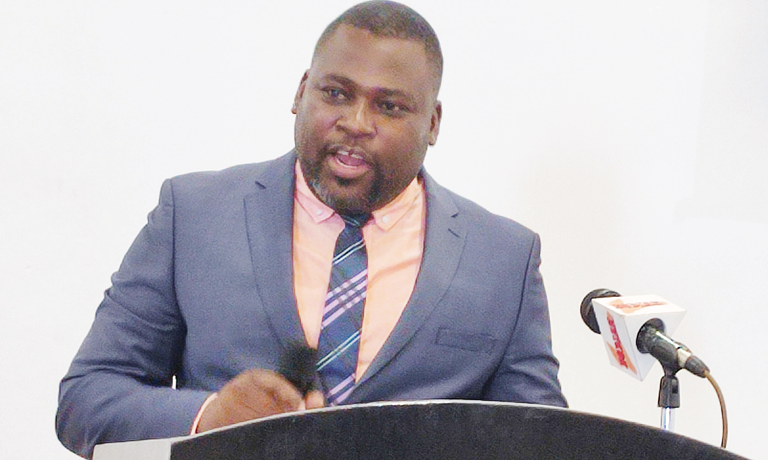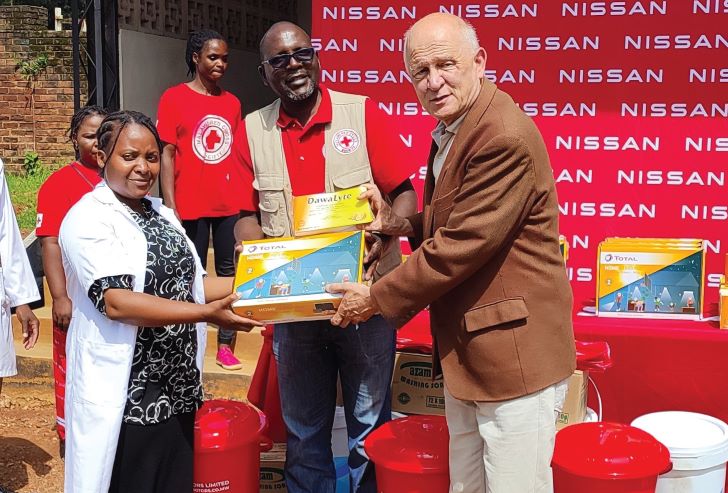What Chakwera said in Parliament
“We have a new Director of Public Prosecutions, but if we choose to work in isolation, be it in my office, the Anti-Corruption Bureau or Malawi Police Service, we will move nowhere. We need concerted efforts to allow the rule of law flourish, to win the battle against corruption and safeguard what belongs to the taxpayer.”—Attorney General Thabo Chakaka Nyirenda, The Nation February 23 2023.
A top priority for my administration was the establishment of a Financial and Economic Crimes Court. I am therefore delighted to report that following the enactment of the Courts Act, this new court was set up, with three judges, an assistant registrar, an administrator and support staff.
The purpose of the court is to expedite the successful prosecution of corruption cases. Some have argued that the lack of progress on cases is due to legal and political impediments that have beleaguered the director general of the Anti-Corruption Bureau in the last two months.
I agree that it is likely that those impediments have disturbed her in her work and it is a relief that the new Director of Public Prosecutions [Masauko Chamkakala] whom I appointed and Parliament confirmed last month has removed these impediments. However, it is also my view that the impediments that have disturbed her work need not be seen as a hindrance to the work of the institution itself.
Chizuma (L) shakes hands with Chakwera as Chamkakala (2nd L) and Minister of Justice Titus Mvalo (R) look on
It is no secret that under my administration, the Bureau is a fully capacitated institution with hundreds of human and billions of financial resources at its disposal as well as greater operational freedom since the removal of the consent clause from the Corrupt Practices Act.
In fact, the Bureau itself has proved this to be true, because despite the impediments the Bureau Chief has faced, it has continued to execute its mandate in other matters throughout the same year in which the director general was variously impeded.
In the past year, the ACB investigated 584 cases out of 914 complaints received. It completed 270 investigations, recommended 67 cases for prosecution, conducted several procurement approvals, monitored five national programmes, conducted six anti-corruption clinics, coordinated a successful national anti-corruption conference, and led a 20-week anticorruption campaign.
So, since the Bureau has been productive as an institution in these other important matters it was handling during that same period, I believe that the lack of progress on the prosecution of cases by the entire institution over that period needs a more serious and sober analysis.
For that reason, although only a fraction of the 48 corruption cases the Bureau has consent to prosecute have made progress, I do not presently blame anyone for the delay, because the factors that can delay the prosecution of any case are many.
But what I would like to do instead is to respectfully appeal to the Judiciary to assist with the worrisome situation by setting dates for all the consented cases so that Malawians can see progress.
I am appealing to the Judiciary because its performance in the management of other cases this past year has been impressive, with a total of 65157 registered, over 40 000 of which were concluded. This represents a 62 percent completion rate and Malawians deserve similar progress on corruption cases.
The good news is that we established the Asset Forfeiture Unit, through which we have so far traced and preserved illicit assets worth over K1.4 billion, connected to 25 individuals who are answering cases of fraud and money laundering.
Through this Unit, we will be seeking the recovery of money stolen from Malawi and domiciled in other countries like the UK, the US, the EU, the UAE and South Africa.
So, we count on our development partners to be as passionate about helping us recover our stolen wealth from their nations as they are about keeping their donated wealth from being stolen here in Malawi.
Another way in which people try to defraud the Malawian people is by making exorbitant claims against the government in court, but thanks to the tenacity of the Attorney General [Thabo Chakaka Nyirenda], we have challenged over 850 civil cases, saving over K260 billion in settlement claims.
But justice is only possible where there are just laws, and so I thank all the members of Parliament for passing 45 bills my administration presented to the House.
What commentators say
President Lazarus Chakwera’s resolve to fight corruption in Malawi continues to be mired in controversy.
All charges were dropped against Anti-Corruption Bureau (ACB) chief Martha Chizuma by Malawi’s prosecutor, the Director of Public Prosecutions (DPP) earlier this month, but not before the government received a barrage of criticism within the country and by donor states on how it is handling its anti-corruption crusade.
The criminal indictment following Chizuma’s arrest in December 2022 was related to a leaked audio where she discussed some high-profile corruption cases in Malawi.
Faltering battle?
With the number of events swirling around the office of the ACB, the resolve to combat graft in Malawi has faltered in recent weeks.
Chakwera’s critics say he has flip-flopped on his decisions on whether to retain the head of the ACB or allow other forces to hang the renowned anti-corruption champion.
“In some cases, President Chakwera actually appeared to have been aiding and abetting corruption through cursory attention to allegations levelled against people who have surrounded him,” Kondwani Nankhumwa, the leader of opposition in parliament, tells The Africa Report.
Donors fury
The charges against Chizuma angered the donor community while the Malawi Law Society (MLS) moved swiftly to obtain a court order restraining the government from carrying through the indictment.
We have actively engaged senior government officials to seek renewed commitment to the fight against corruption, but those efforts have not yielded results
Malawi’s Attorney General Thabo Chakaka Nyirenda, to the surprise of many Malawians, hired private lawyers to dismiss the restraining order obtained by the MLS.
Meanwhile, President Chakwera had made several pronouncements that his administration was fully behind the ACB chief and that there would be no reprisals for the said leaked audio.
Malawi’s bilateral donors, led by the US and Norway, have condemned the Chakwera administration for losing focus on the larger picture and instead wasting time and state resources to fight Chizuma.
“We have actively engaged senior government officials to seek renewed commitment to the fight against corruption, but those efforts have not yielded results,” said a statement from the US embassy in Lilongwe.
“These recent actions undermine the credibility of the government of Malawi’s stated commitment to fight against corruption.”
The ministry of information released a statement in response, stating that Malawi is a sovereign country hence the government had a right to act as it deems fit.
Rhetoric vs practice
Chakwera, well known for his breathtaking speeches and American accent, has been preaching zero tolerance for corruption since he assumed power in 2020.
Despite his public pronouncements, however, several officials in Chakwera’s administration are being investigated on suspected corruption charges.
Speaking in July 2022 during a national anti-corruption conference, Chakwera said he was satisfied with the route his administration had taken in the fight against corruption.
Even so, Nankhumwa, the opposition leader, tells The Africa Report: “None of those suspects in the president’s inner circle have faced the law; they are all working as per [usual]…for the administration.” He says he believes Chakwera has lost control of the fight against corruption.
The post Malawi’s anti-corruption war first appeared on The Nation Online.
 Moni Malawi
Moni Malawi 

